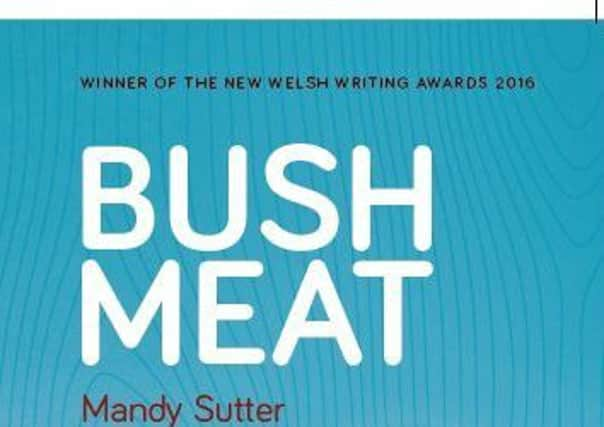A sense of place


Mandy Sutter’s latest book was a long time in the making.
The Ilkley-based writer began work on what was to become her new novel Bush Meat, published this month, around 13 years ago, but the seeds were sown much further back.
At the age of six, in 1963, her father’s work as a geophysicist took Sutter and her parents to Aba in Nigeria where they lived until 1964 when they moved back to the UK. That time clearly left a profound and lasting impression on Sutter who has channelled her childhood experiences into a beautifully written, evocative novel which is set partly in Nigeria, partly in Britain.
Advertisement
Hide AdAdvertisement
Hide Ad“In 2004 I was asked to contribute to a short story anthology – there were going to be four women with two stories each – and I wrote a story about Nigeria,” says Sutter. “It was almost entirely fictional, except for the central family relationship which was based on me and my parents, and once I’d written it I had that feeling ‘where did that come from?’ but in a sense that first story was a bit of a template.”
The novel’s form is intriguing and quite experimental – essentially it is a collection of thematically linked stories with recurring characters. Each chapter is a self-contained piece, yet all are closely connected and an essential part of a hugely satisfying whole. Last year Sutter won the 2016 New Welsh Writing Awards, run annually by the New Welsh Review, with the title story Bush Meat. Part of the prize was a publishing deal and the publishers asked if she had any more stories. There were around six, also inspired by her time in Nigeria, written over a period of around ten years. She then had a year in which to write the rest, another dozen or so, drawing threads together. “I was hugely spurred on by winning the prize and the writing really flowed,” she says. “Some of the stories are almost verbatim accounts of something that actually happened and others are pure fiction. I don’t actually have that many narrative memories of being in Nigeria – it is more like a ‘felt’ sense of the place – my memories are of objects and things that were unusual or unfamiliar.”
When the family came back to the UK Sutter says that her parents would tell anecdotes about their time in Nigeria that she had no memory of. Equally, many of her recollections were “completely uncorroborated” by her parents and in a way, she says, a big motivator to write the book was to find her own narrative.
A central figure in the book is six-year-old Sarah from whose perspective many of the stories are told. “You have a young child in a different culture having experiences that the parents are not party to,” she says. “Also as an only child much of my childhood was unwitnessed by peers.” The psychology of that interests her, she says. “Maybe if I had siblings I wouldn’t have needed to write the book. I suppose it is about wanting as an adult to honour in words the experience I had as a child.”
REVIEW
Bush Meat by Mandy Sutter
Published by New Welsh Rarebyte, £10.99
Advertisement
Hide AdAdvertisement
Hide AdMandy Sutter’s new novel is a brilliantly evocative portrait of the small Nigerian town of Aba in the early 1960s, based on her own time there as a child.
The novel’s structure is unusual, with each chapter a vignette contributing to the whole. They read like short stories in the sense that there is no resolution, which imbues then with an edginess that is hugely engaging. It also gives what is essentially a literary novel the page-turning quality of a good thriller – because so much feels witheld, there is a compulsion to read on and discover more about the characters as they pop up in different situations and are seen from different perspectives.
Sutter transports the reader to a place of vivid and unfamiliar sights, sounds and colours – all skilfully conjured up by her assured and elegant writing – telling the story of young Sarah, her parents, their household and community in Aba, then following the family back to the UK where they struggle to readjust to life at home.
Bush Meat explores with great grace and sensitivity the experiences of young and old, black and white, indigenous and expat, across continents and generations. From a very specific time and place, Sutter has fashioned a book that quietly and compellingly reminds us of our common humanity.